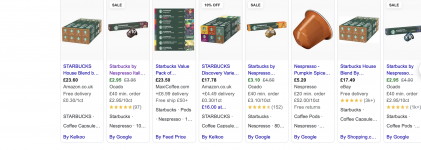You are using an out of date browser. It may not display this or other websites correctly.
You should upgrade or use an alternative browser.
You should upgrade or use an alternative browser.
Kahawa bad news
- Thread starter Okiya
- Start date
Tiiga Waana
Elder Lister
Caption:
Chunga mfuko na wallet ukikutana na jambazi mwizi gaidi!
Clemens
Elder Lister
Anyone that voted for this stoopid guy should get their head examined.
Mwalimu-G
Elder Lister
@The.Black.Templar unaitwa.Anyone that voted for this stoopid guy should get their head examined.
pop in
Elder Lister
The usual gang led by @Okiya is on a roll kama kawa what has Ruto got to do with something that was drafted in 2021
The European Union's (EU) Deforestation Regulation (EUDR) was crafted over several steps, starting in November 2021 and ending with its enactment in June 2023:
The EUDR is part of the EU's effort to reduce its contribution to global deforestation and forest degradation. It requires that all commodities entering or leaving the EU be certified as not contributing to recent deforestation or forest degradation. The EUDR covers a wide range of products, including:
Cattle, Cocoa, Coffee, Oil palm, Rubber, Soya, and Wood.
The EUDR also covers derived products, such as meat products, leather, chocolate, and more.
The EUDR becomes effective for micro and small exporters on June 30, 2025.
How EU deforestation laws are reordering world of coffee
The European Deforestation Regulation, or EUDR, will outlaw sales of products such as coffee beginning December 30, 2024, if companies can't prove they are not linked with deforestation. The new rules' scope is wide: They will apply to cocoa, coffee, soy, palm oil, wood, rubber and cattle. To sell those products in Europe, big companies will have to show they come from land where forests haven't been cut since 2020. Smaller companies have until July 2025 to do so.
The European Union's (EU) Deforestation Regulation (EUDR) was crafted over several steps, starting in November 2021 and ending with its enactment in June 2023:
| Step | Date |
|---|---|
| Proposal | November 17, 2021 |
| General approach | June 28, 2022 |
| Political agreement | December 6, 2022 |
| Parliament adoption | April 19, 2023 |
| Council adoption | May 16, 2023 |
| Enactment | June 29, 2023 |
Cattle, Cocoa, Coffee, Oil palm, Rubber, Soya, and Wood.
The EUDR also covers derived products, such as meat products, leather, chocolate, and more.
The EUDR becomes effective for micro and small exporters on June 30, 2025.
Wameguza murima where coffee comes from
Clemens
Elder Lister
Low Iq post, coffee is grown in over 14 counties in Kenya.Wameguza murima where coffee comes from
Young_Turk
Elder Lister
Name themLow Iq post, coffee is grown in over 14 counties in Kenya.
In alphabetical order AND size of production.
Thanks
DeepInYourMind
Elder Lister
A backward arrangement has Kenya exporting raw coffee and importing finished product. Same deal that has nigeria experiencing an energy crisis because they export crude oil cheaply and import the finished product at a more expensive price.We grow the coffee but its only for the elite in kenya, otherwise, how can one explain the difference in prices? Its extortional
High quality coffee should be available at a cheaper price for Kenyans. Coffee is already popular, there are vendors who go around selling small amounts of coffee at 20/- and get many customers. I believe the local market has not been fully explored and satisfied. More processing and value addition targeting the local market should be done.
An interesting thing is that some Westerners theorize that coffee houses helped the enlightenment that led to technological advances. Instead of people socializing in alcohol joints and getting drunk, they socialized in coffee houses after it was introduced, drinking a stimulant that made their minds sharp and facilitated exchange of progressive ideas. How about kenya develops a home grown coffee house culture?
Mwalimu-G
Elder Lister
Maybe there's a difference in how easily different counties can adopt to alternative lifestyles if coffee failed. The Kabartonjo farmer could easily go into Koriema goat rearing while the Embu farmer with his two acre land may not be able to move on as easily.Low Iq post, coffee is grown in over 14 counties in Kenya.
Mongrel
Elder Lister
In search of gems?Anyone that voted for this stoopid guy should get their head examined.
Clemens
Elder Lister
Too much work Google is your friend.Name them
In alphabetical order AND size of production.
Thanks
Clemens
Elder Lister
True, but the Embu farmer can decide to farm Banana's for Nairobi, something that can be hard for a farmer in Kasisit village of Kabartonjo, although for some reasons, I am seeing coffee farming being aggressively embraced here in the rift.Maybe there's a difference in how easily different counties can adopt to alternative lifestyles if coffee failed. The Kabartonjo farmer could easily go into Koriema goat rearing while the Embu farmer with his two acre land may not be able to move on as easily.
DeepInYourMind
Elder Lister
Let's have more of this for a start
Anyone that voted for this stoopid guy should get their head examined.
Poop in @pop in
Penis Young @Denis Young
Eng'iti
Elder Lister
Name them
In alphabetical order AND size of production.
Thanks

Kenya: coffee production 2018-2019 by county | Statista
During the season 2018/2019, Kiambu was the county with the highest production volume of coffee in Kenya, despite pressures from real estates and other competing agricultural enterprises.


